When Cristina Fernández de Kirchner is sworn-in as Argentina’s vicepresident next month, she will probably face at least 10 cases investigating alleged corruption charges dating back to her presidency.
Yet despite there still being five weeks to go before the handover, perhaps the first winds of change are already sweeping through the Comodoro Py courthouse.
Earlier this week, just a few days after Sunday’s election victory by Frente de Todos candidate Alberto Fernández, the Federal Appeals Court in the capital dropped indictments against the former president in two cases.
The Supreme Court too holds the key to another case: it will soon review another of the trials she faces, although the country’s highest tribunal is unlikely to make a decision in the upcoming weeks.
INDICTMENTS
From the courts, it was good news and bad news for the vicepresident-elect this week. Less than 48 hours after she was confirmed as Argentina’s next vice-president, Federal Court of Appeals Judges Leopoldo Bruglia and Pablo Bertuzzi confirmed Fernández de Kirchner’s indictment in an investigation into the alleged cartelisation of public works projects.
Simultaneously, they dropped her from two cases. One involving alleged bribery and the favouring of certain firms for highway construction in her home province of Santa Cruz, and another regarding alleged irregularities in the import of liquefied natural gas, or LNG.
The latter case is one of the most controversial ongoing investigations inside the courthouse located on Comodoro Py Avenue. This is because part of the investigation was based on an expert opinion now seen as falsified. The expert, David Cohen, ended up being being investigated himself for providing false information in an attempt to implicate other former Kirchnerite officials in the case.
After doubts about the expert report were revealed, Marcelo D’Alessio – who pretended to be a lawyer and a security expert – came forward to testify in the case. His testimony was given before Federal Prosecutor Carlos Stornelli. This week, the Federal Appeals Court ordered that those statements be declared null and void. (D’Alessio is currently being held in custody as part of an espionage case which is being investigated by Dolores Federal Judge Alejo Ramos Padilla.)
The liquefied gas case was also crucial in another way – it allowed Bonadio to deploy an argument that he should retain control of the investigation into the ‘cuadernos de las coimas’ (“corruption notebooks”), the infamous case investigating an alleged bribery and kickbacks ring during the Kirchnerite years which has seen more than 100 businessmen and former government officials indicted, including Fernández de Kirchner.
SUPREME SILENCE
In May, Federal Oral Court (TOF) No. 2 kicked off a trial that will determine whether Fernández de Kirchner’s government sought to favour notorious businessman Lázaro Báez, a friend of the late President Néstor Kirchner, in the awarding of public works projects in Santa Cruz Province, the Kirchner’s stronghold. The court is due to interrogate Fernández de Kirchner about these charges in the upcoming weeks. Beforehand, the members of the court must decide whether to greenlight another request filed by the former president seeking authorisation to travel to Cuba to visit her daughter, Florencia Kirchner, who is undergoing medical treatment on the island.
The Supreme Court has already tried to halt this trial without success. Four of the justices – Ricardo Lorenzetti, Elena Highton de Nolasco, Horacio Rosatti and Juan Carlos Maqueda – requested files from the TOF 2 in order to review challenges filed by several defence lawyers working on the case. However, the nation’s highest court backpedalled after accusations from the government and the refusal of the court’s authorities to freeze the trial.
According to sources inside the courthouse, two of the justices, namely Rosatti and Maqueda, still argue that the challenges should be reviewed. Their colleagues do not share their view.
Chief Justice Carlos Rosenkrantz, widely seen as the closest to Macri, has never supported his colleagues in their request. For now, the majority is broken, sources told the Times.
ADDITIONAL CASES
The vice-president-elect has also been indicted in the socalled “dollar futures” case for “unfaithful administration to the detriment of public administration,” an investigation promoted by members of the outgoing Cambiemos ruling coalition.
Fernández de Kirchner also faces charges, along with her children, Máximo and Florencia, of money-laundering, focused on alleged bribes run through the Hotesur and Los Sauces hotels via faked rental contracts.
She was also accused of having documents of historical value in her home in Santa Cruz and another case related to alleged bribery in the railway system. In March, Bonadio even indicted her for using the presidential aircraft to allegedly deliver newspapers from Buenos Aires to Santa Cruz.
The most high-profile – and perhaps most impactful – case, however, concerns the signing of the 2013 Memorandum of Understanding (MOU) with Iran, with accusations related to the bombing of the AMIA Jewish community centre in 1994, which left 85 people dead. In 2015, AMIA special prosecutor Alberto Nisman accused Fernández de Kirchner of treason and cutting a deal with Tehran that would cover up the identity of those responsible for the terrorist attack. Four days after filing the complaint, Nisman was found dead in his apartment in the Le Parc building. Federal Prosecutor Eduardo Taiano and Federal Judge Julián Ercolini now take it for granted that he was murdered but so far they have not been able to explain by whom or how.
The memorandum case was reopened in 2016, during the first year of the government of Mauricio Macri. In 2015, the courts had ruled that there was no crime to answer.
A NEW ERA
And what about Alberto Fernández’s approach to the courts? A professor of criminal law, his relationship with the Judiciary is longstanding, yet questions are beginning to circulate about the courts themselves and about what attitude the new president will take toward them.
So far, Fernández has shown no sign that he wants to make changes in the Supreme Court, where he is on good terms with most of its members. The new president, however, will have to nominate a new attorney general. Macri failed to get the necessary two-thirds majority to designate his preferred candidate, Judge Inés Weinberg de Roca, for the post left vacant by Alejandra Gils Carbó after her resignation in 2017.
According to judicial sources, Fernández’s choice for the Attorney General’s Office would be a prestigious federal judge who has his office on the third floor of the Comodoro Py courthouse.
Fernández has appointed four aides to oversee the transition until December 10: Santiago Cafiero, Vilma Ibarra, Gustavo Beliz and Eduardo “Wado” de Pedro. Of those four, three are experts on the courts.
Ibarra, a former partner of the president-elect, could become Fernández’s legal and technical secretary. Beliz was Néstor Kirchner’s first justice minister, leaving the government in the middle of a fierce dispute with the controversial former strongman of the Intelligence Secretariat, Antonio “Jaime” Stiuso. At the time, Beliz proposed cutting the power of federal judges, an idea which earned him several enemies within the courts.
De Pedro is a member of La Cámpora, who has the best relationship with both Fernández and Fernández de Kirchner. He is currently a member of the Magistrates Council, the body in charge of the selection and removal of judges, and is seen as the Kirchnerite interlocutor at the central courthouse on Talcahuano street.
On Tuesday, he participated in the swearing-in of Juan Bautista Mahiques as attorney general of the City of Buenos Aires. He was seated in the front row along with Marcela Losardo – one of Fernández’s partners at his legal firm, who is seen as one of the candidates to take charge of the Justice Ministry – and Juan Manuel Olmos, one of the main Peronist operators at the City courts.
As with most things on Fernández’s plate, there are a lot of moving parts.








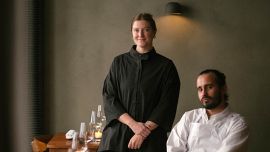







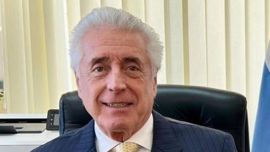

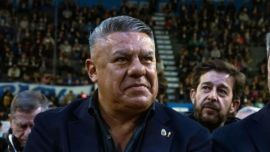
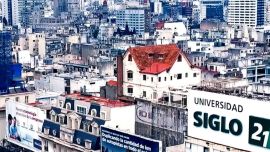
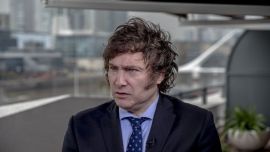
Comments